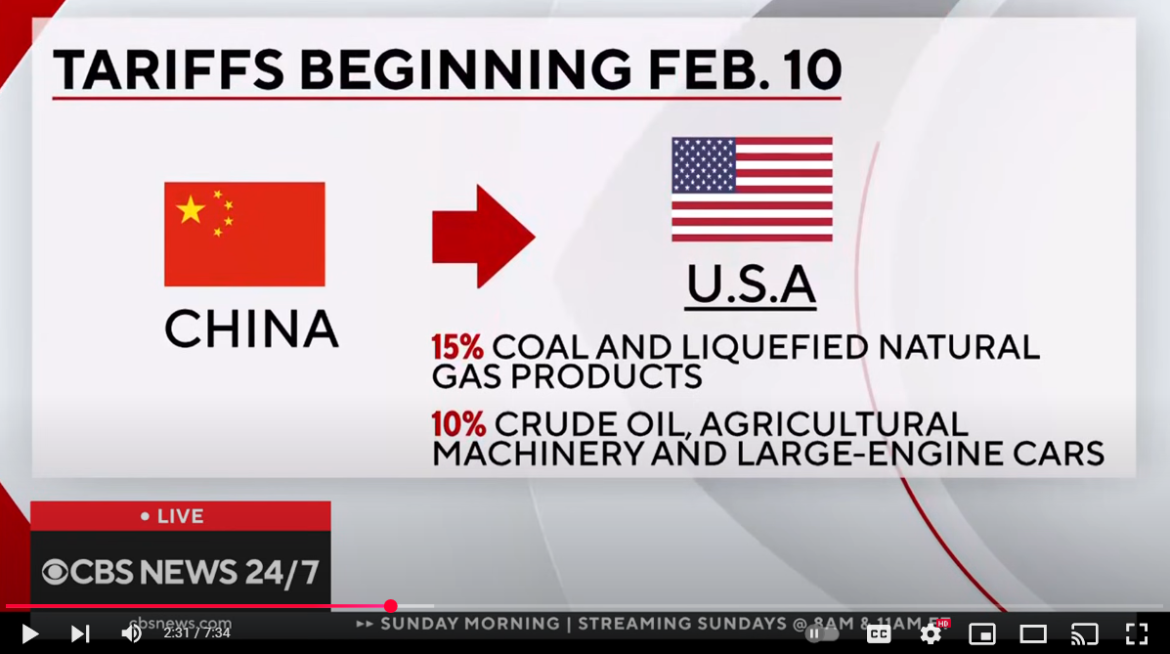In a significant escalation of trade tensions, China announces the imposition of retaliatory tariffs on select U.S. imports, effective next week. This move comes in direct response to President Donald Trump’s recent decision to enact additional tariffs on Chinese products.
Beijing’s new tariffs include a 15% levy on American coal and liquefied natural gas (LNG), and a 10% tariff on crude oil, agricultural machinery, and certain automobiles. These measures target key sectors of the U.S. economy, reflecting China’s strategic approach in the ongoing trade dispute.
Over the weekend, President Trump authorized a 10% tariff on Chinese goods, supplementing the existing 25% tariffs established during his first term. The administration justifies these actions as necessary to address trade imbalances and protect national interests.
In addition to the tariffs, China has initiated an antitrust investigation into Google, signaling a broadening of the conflict beyond traditional trade issues. The State Administration for Market Regulation is examining Google’s business practices for potential violations, though specific details remain undisclosed.
Furthermore, China’s Ministry of Commerce has added U.S. companies PVH Corp and Illumina Inc to its “unreliable entities” list, citing actions that harm China’s interests. This designation restricts these companies from engaging in trade and investment activities within China.
The escalating tariffs and additional measures have raised concerns about potential disruptions in global supply chains and increased costs for consumers and businesses alike. Analysts warn that prolonged trade tensions could have far-reaching implications for the global economy.



